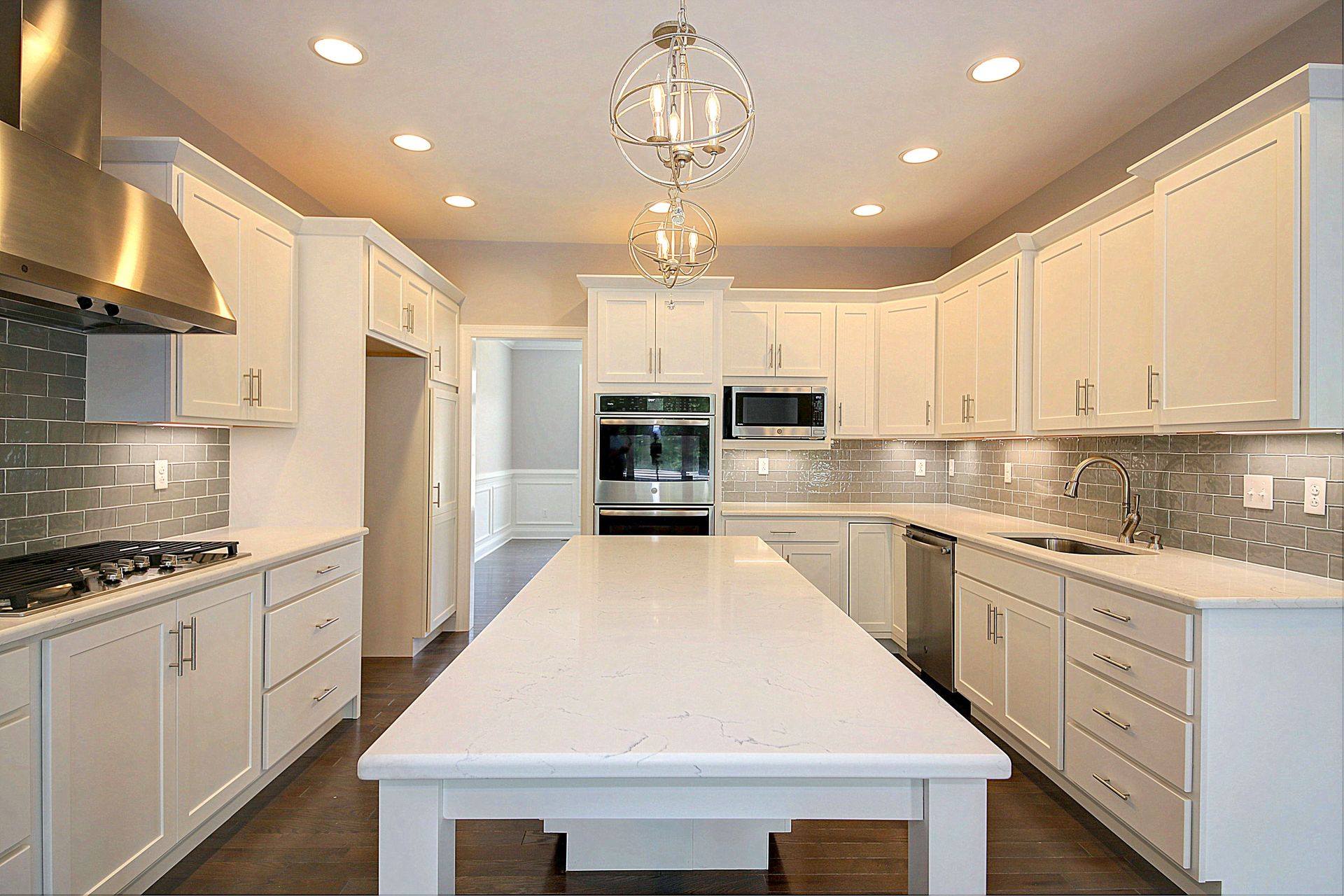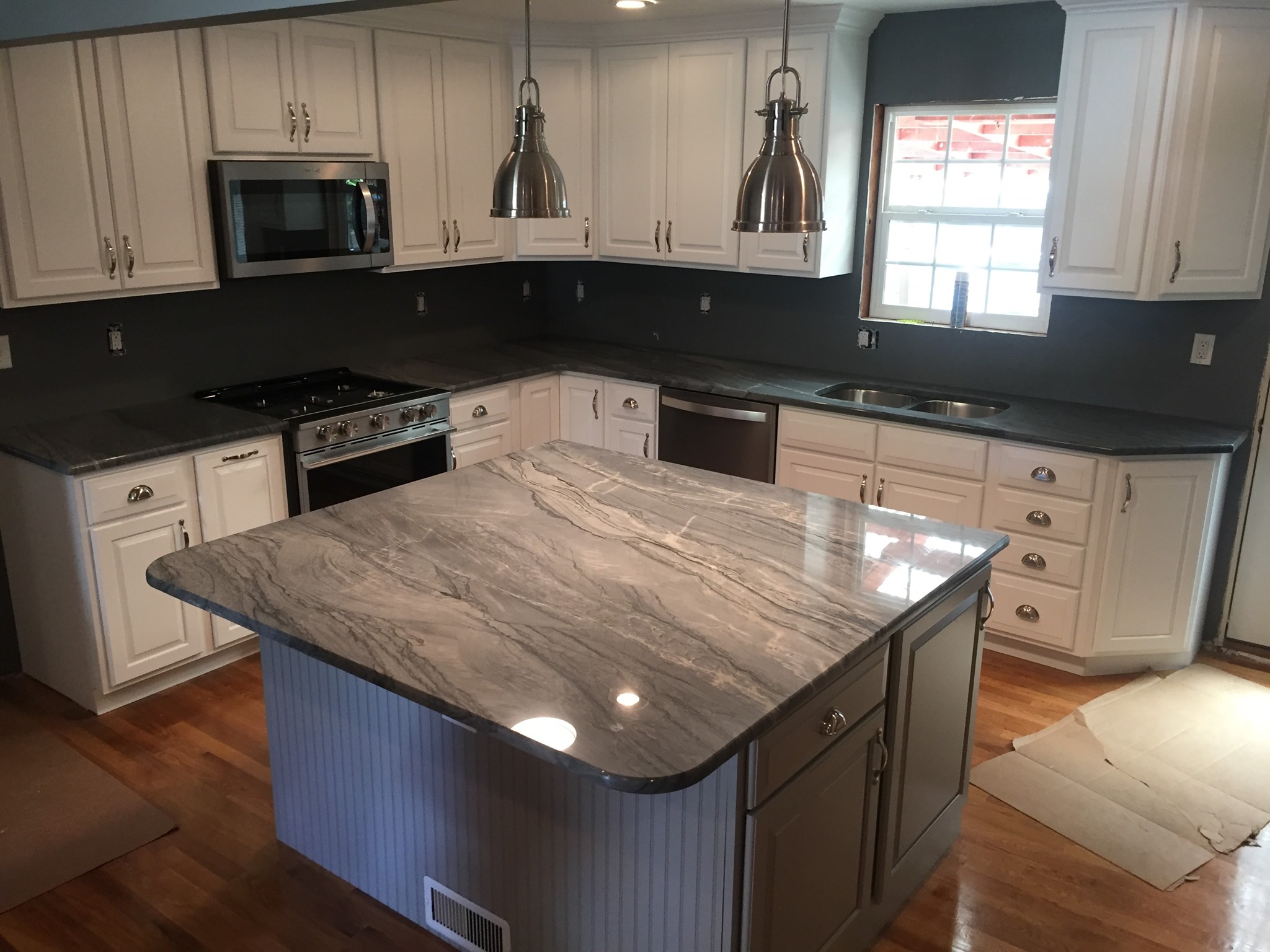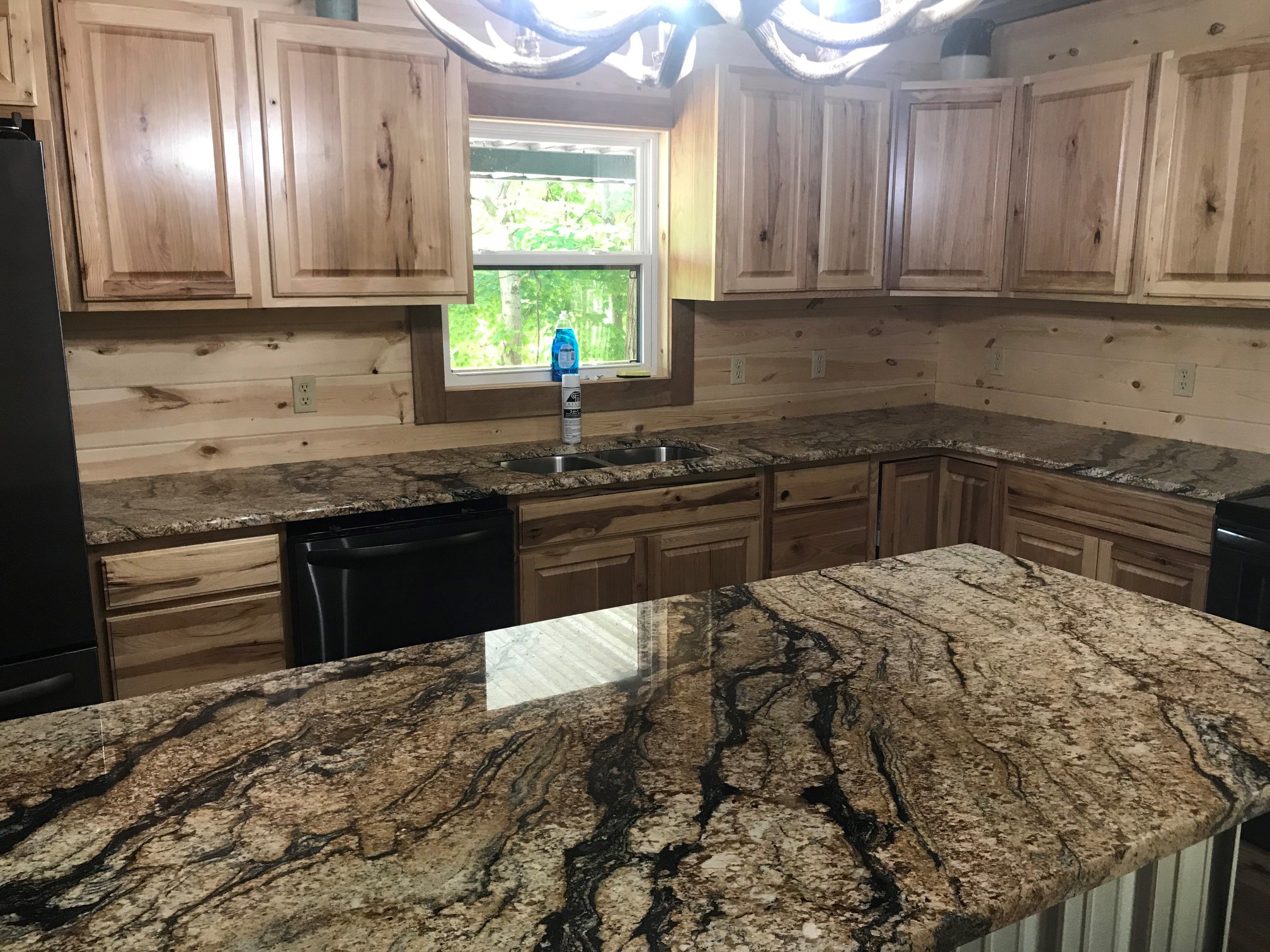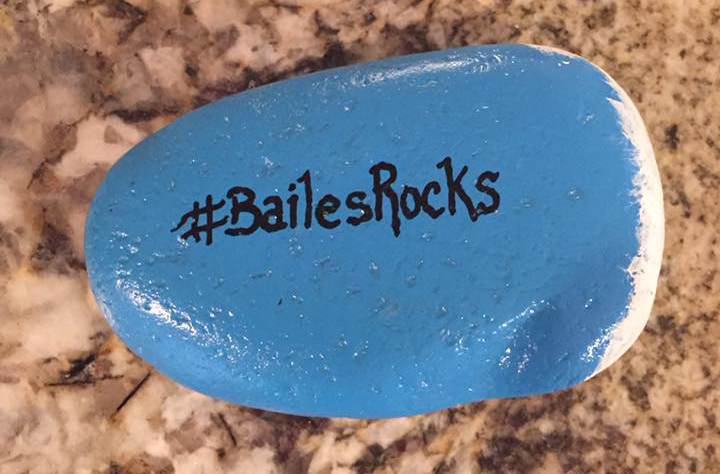Fabricator Focus
Bailes Granite and Marble Charleston, W. Va.
"With stone, people are much more excited."
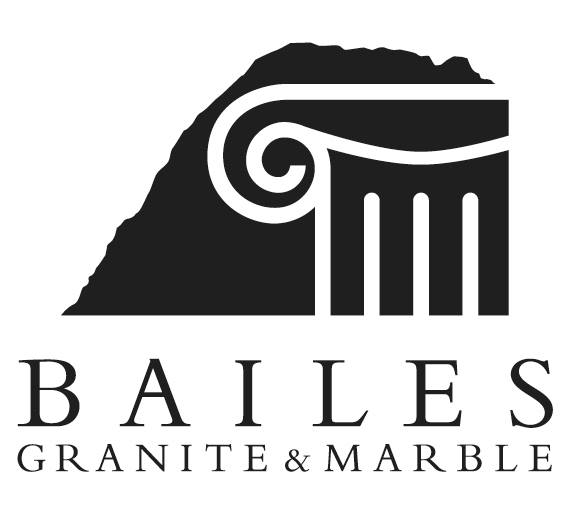
By K. Schipper
CHARLESTON, W. Va. – Many businesses like to say they’re just like a family, but at Bailes Granite and Marble the family ties run stronger than most.
Not only are John Carper II and his wife, Megan, the fourth generation of his family to run the business, but they’re also strong on hiring the family members of their employees, and they have at least one employee who’s been working there since the early 1970s.
If anything, stone fabrication is the newcomer. Until the 21st century, Bailes was strictly a glass shop, although Megan Carper says the transition to stone was comparatively easy.
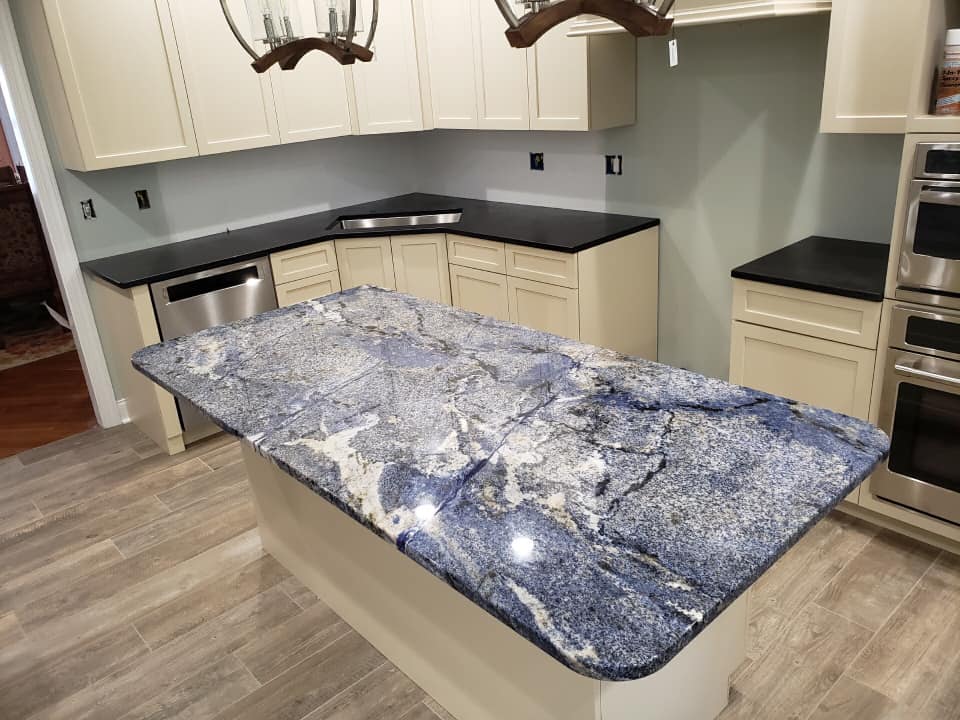
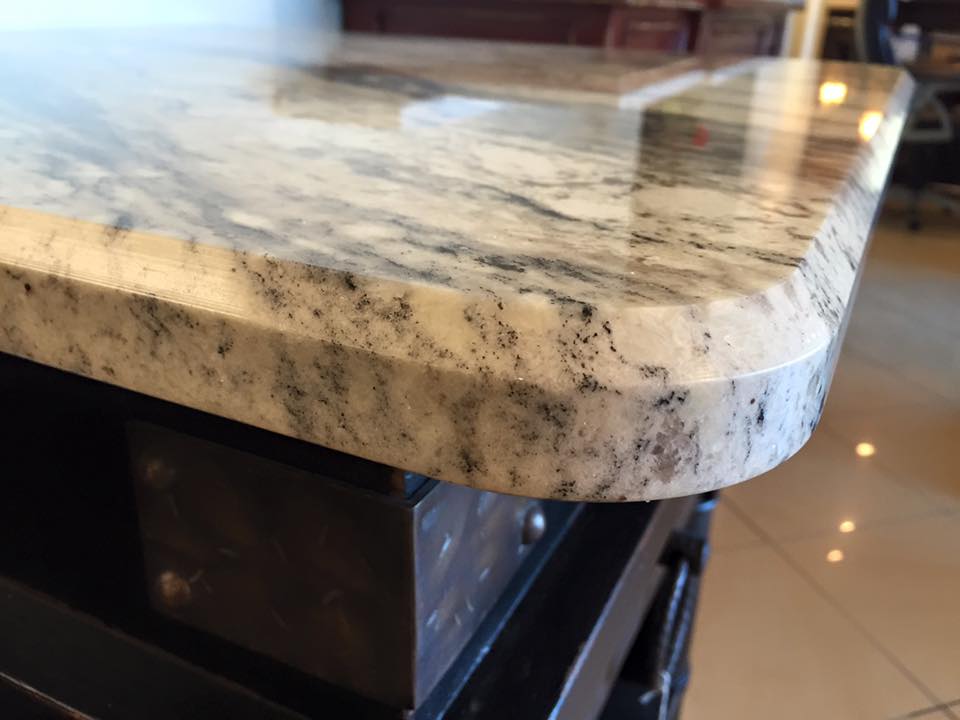
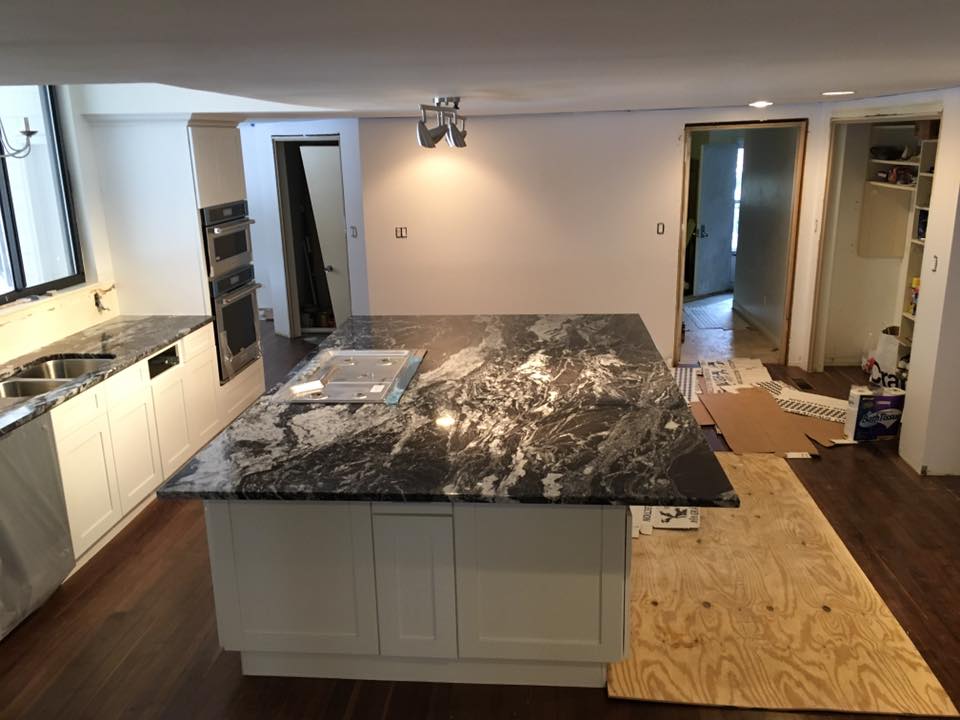
BREAKING UP WITH GLASS
What is now Bailes Granite and Marble started in Charleston in 1955 as a glass shop, which it remained as the business was passed on to one of the Bailes’ daughters and her husband. It might have continued that way had their son, John Carper, not purchased a crane from a company in Charleston.
The idea, says Megan Carper, is that it could be used to move glass crates. She adds that the crane sat outside until her father-in-law literally built an L-shaped addition to their existing facility around it.
Around that time, their Z Bavelloni salesman happened to drop by. The Italian company had also started in glass and expanded into stone, and the salesman suggested Bailes do the same.
“My father-in-law had known him for years, and the next thing we knew, we were at a granite show looking at equipment,” Megan Carper says. “We jumped into the granite business in 2001, and we did both until I had my son around the end of 2004. At that point, we let the glass business go and started doing stone exclusively.”
Although the company still gets regular calls about replacing glass, Megan Carper says the transition from one product to the other wasn’t all that difficult. For one thing, at that time, there was only one stone fabricator in Charleston, and he did hand fabrication.
“He didn’t inventory stone and he didn’t really focus on customer service,” she says of that early competitor. “We went in with the same theory we’ve always had. We’d be a quality shop – our name is on it – and we’ll take pride in what we do.”
And, while the work has always been done digitally, Megan Carper says there’s still a lot of artistry in what Bailes produces. For instance, if a job requires a stick template, they’ll do a stick template, then digitize it at the shop.
“The guys touch-up everything by hand,” she says. “The seaming is a nice as can be because the guy who runs the saw takes time to layout the seam placements for the best color match. It’s a matter of what works best in every situation.”
There were also some other advantages Bailes had in making the switch from one material to another.
Many of the processes were familiar, and since then the operation has kept up with changing technology. For instance, the company purchased a Northwood Machine Manufacturing Co. CNC two years ago, and more-recently added a GMM five-axis saw. It also utilizes two line-polishers from Montresor & Co. S.r.l. As a fallback, the Bailes have kept their Pedrini manual bridgesaw.
The new GMM saw replaced an older model the company ran by the same manufacturer, and Megan Carper says it might have stayed, as well, except that GMM bought it back to use as a training machine.
“The transition was very easy, but my father-in-law and my husband had built a roller table that we put slabs on and rolled them onto the saw, and they took that,” she says. “My father-in-law has always had that kind of knack. If he needs something, he’ll build it.”
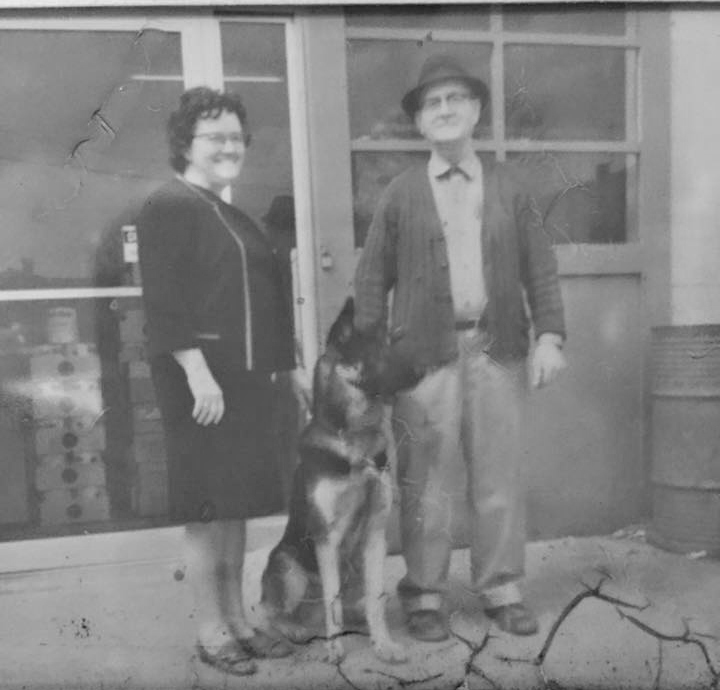
Bailes Granite founders Virginia and John Bailes.
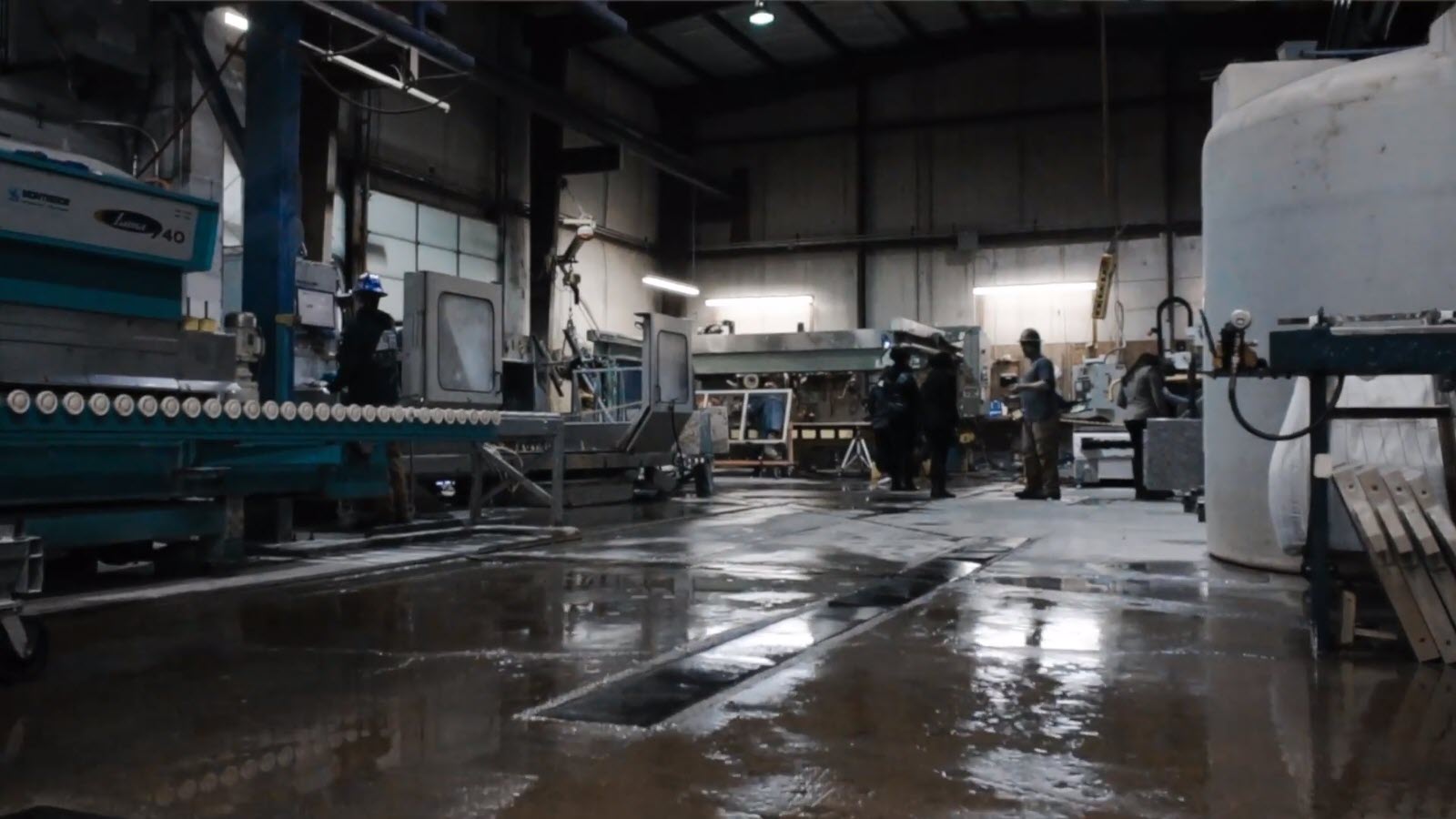
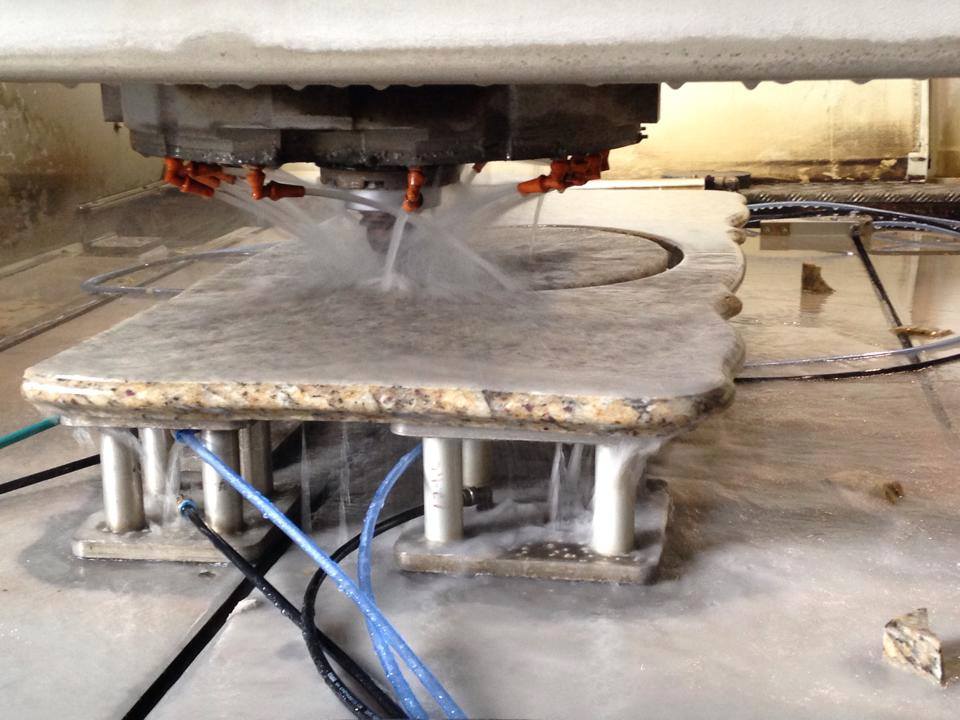
“Being able to educate them takes a lot of fear away”
Megan Carper
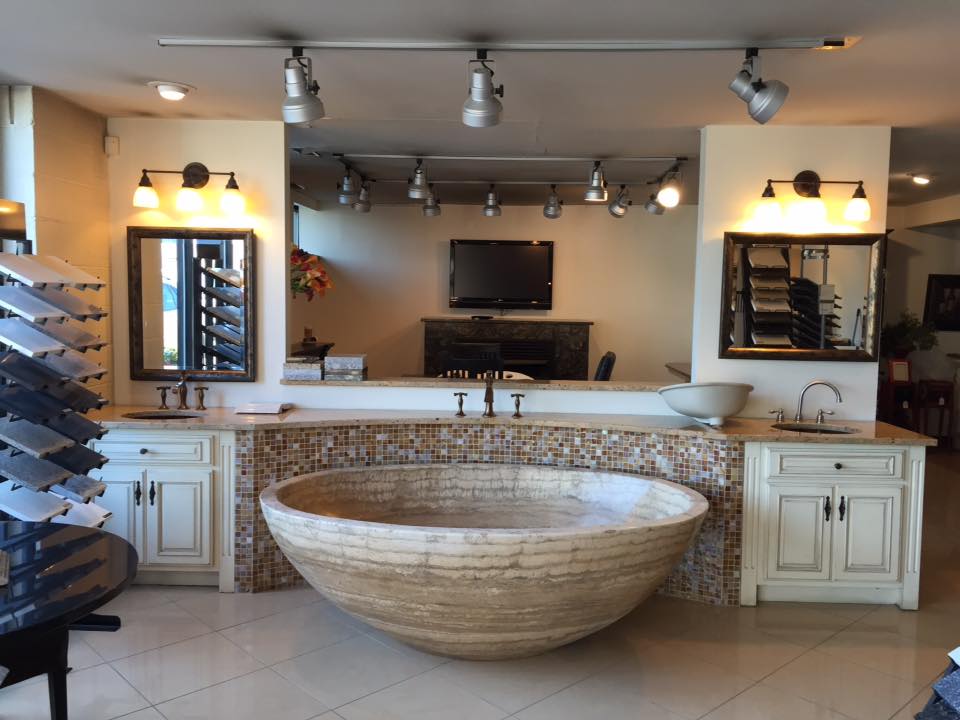
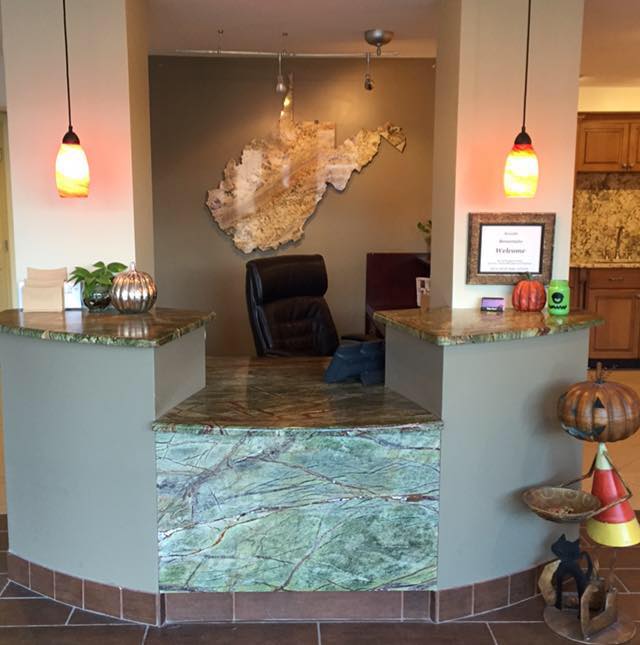
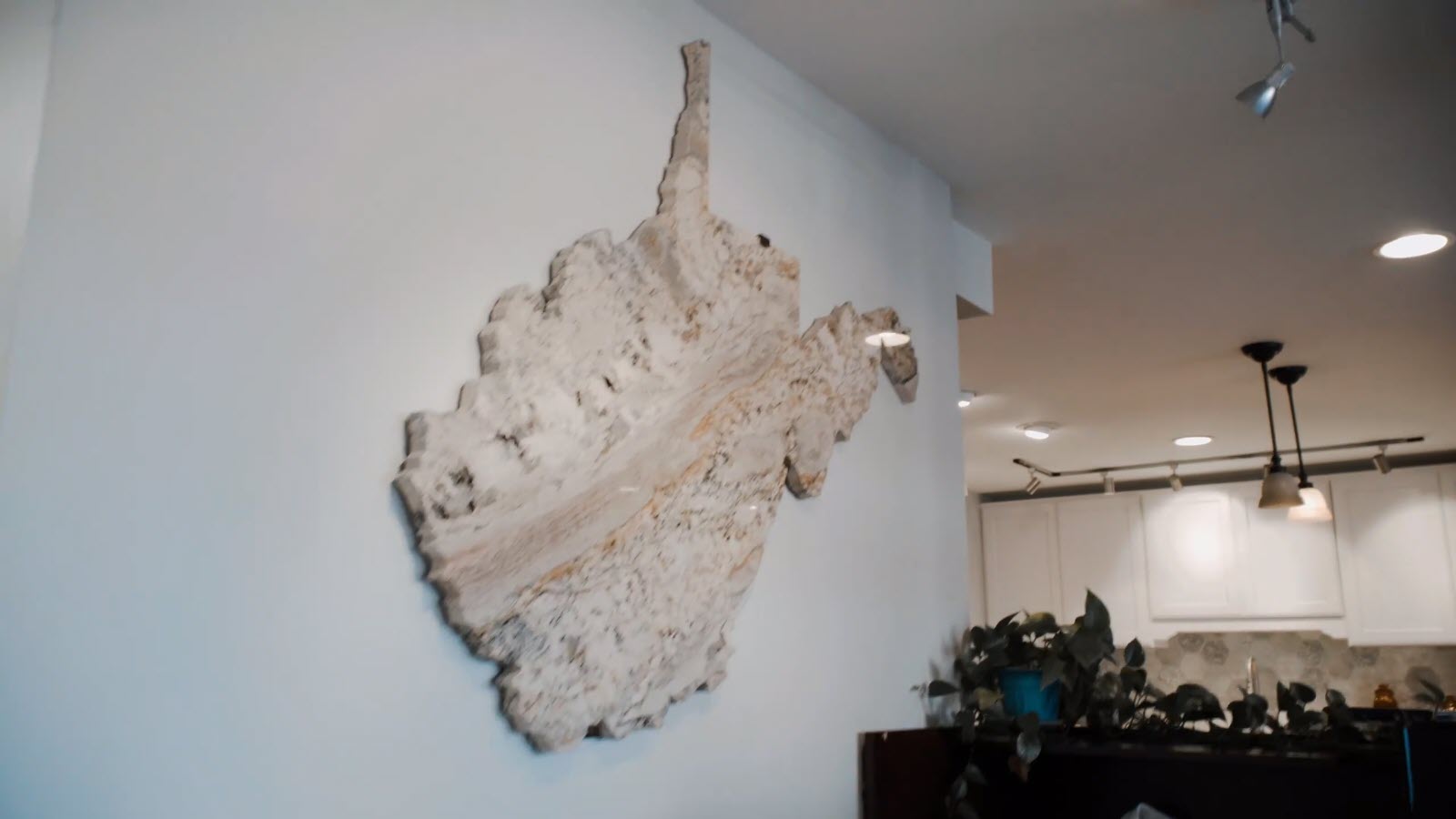
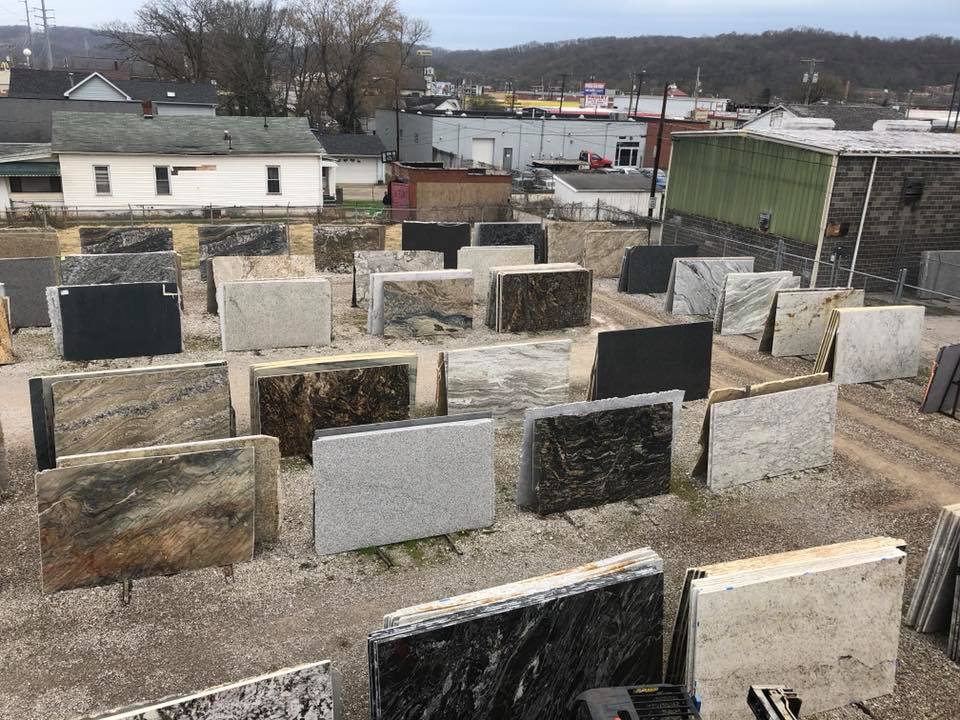
THE FUNDAMENTALS
From her position running the office and handling sales, Megan Carper says the change to stone fabrication also brought with it more-pleasant customers.
“When we sold glass, I had a lot of people who were irritated,” she explains. “They had broken glass and they might not have the money to replace the window their kid had broken. With stone, people are much more excited. It’s new and exciting and fun, and they’re happy to pick it out and get it installed.”
That’s not to say there weren’t a few hiccups. Megan Carper says one of them was making the shift to selling stone.
“Glass is different in that you really don’t have to show samples; it’s just glass,” she says. “Initially, we did what everybody did. We had a wall with our 12” X 12” tiles on it. I remember looking at my father-in-law and saying, ‘How are we going to sell this for $6 a square foot when it looks kind of like this, but not exactly like this?’ To me, that was very foreign.”
Today, the company has converted the downstairs of what is known as “the main building” into a showroom and displays several kitchens along with quartz samples. However, Megan Carper says that’s not the key to how Bailes sells its natural stones.
“Across the street and down the alley we have four separate stone yards, which is where we house our inventory,” she says. “It’s most of a whole city block. We use the showroom mainly to talk to people after they’ve gone across the street to look at slabs.”
If there’s one problem she has right now, Megan Carper says, it’s the need to educate people about quartz – and to a lesser degree stone -- as she explains in her market there seems to be a lot of misinformation about the products.
“Some will come in and think they won’t have any seams if they buy quartz, and we have to tell them it’s possible at times, but not always,” she says. “That’s a part of our sales; we educate them about what they’re getting so they have realistic expectations. It’s a huge decision and a lot of money that’s going into your house. Being able to educate them takes a lot of fear away.”
While the word isn’t entirely out that Bailes has quit doing glass, word-of-mouth remains the company’s preferred method of marketing, although it does some advertising on television and in local magazines.
“The quality of what we provide isn’t something you can get other places, and that’s what we depend on,” she says.
She tells a story where one client e-mailed to say he was disappointed the company wouldn’t be back until the following week to install a backsplash before a weekend party he was having. Although the delay was due to the general contractor, and the Carpers didn’t know about the upcoming event, a Bailes’ crew was out before the party and got the backsplash installed.
“That’s partly selfish,” she says. “I’d much rather they say that Bailes came back early and finished because they needed it for the party. My customers have my cellphone number; they text us and they call us, and we bend over backwards to try to accommodate things like that.”
Today, Bailes’ competition comes mainly from the big box stores. Megan Carper says the company was even approached at one point about taking on one of their contracts, but the family declined.
“It would have been 35 stores,” she says. “That’s our entire state. They also don’t understand how many hours away that is in West Virginia. Thirty miles can be an hour-and-a-half up a country road. And, their customers don’t see the material.”
That’s not to say the company doesn’t make those 30-mile trips. Megan Carper says typically Bailes serves clients within about a two-hour radius of Charleston, meaning a little bit of Kentucky and Ohio. And, for the right client, they’ll go farther.
“We have a ski resort about three-and-a-half hours from here, and I have a couple contractors I work with there,” she says. “But we’ll do anything people are willing to pay us to do. We do some commercial work, and outdoor kitchens seem to be the thing right now. My husband has also been dabbling in building table frames, so we make tables.”
“The quality of what we provide isn’t something you can get other places.”
Megan Carper
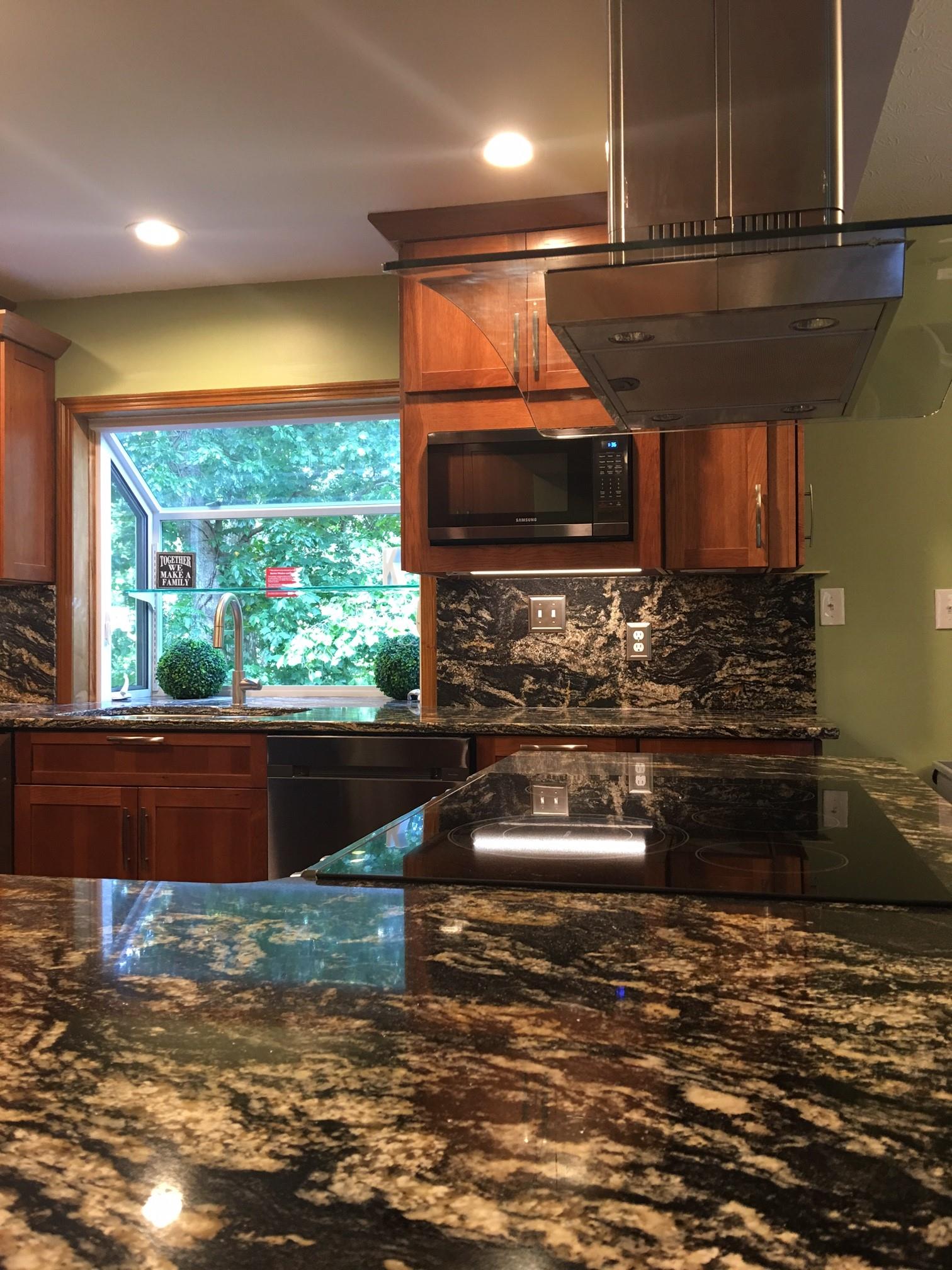
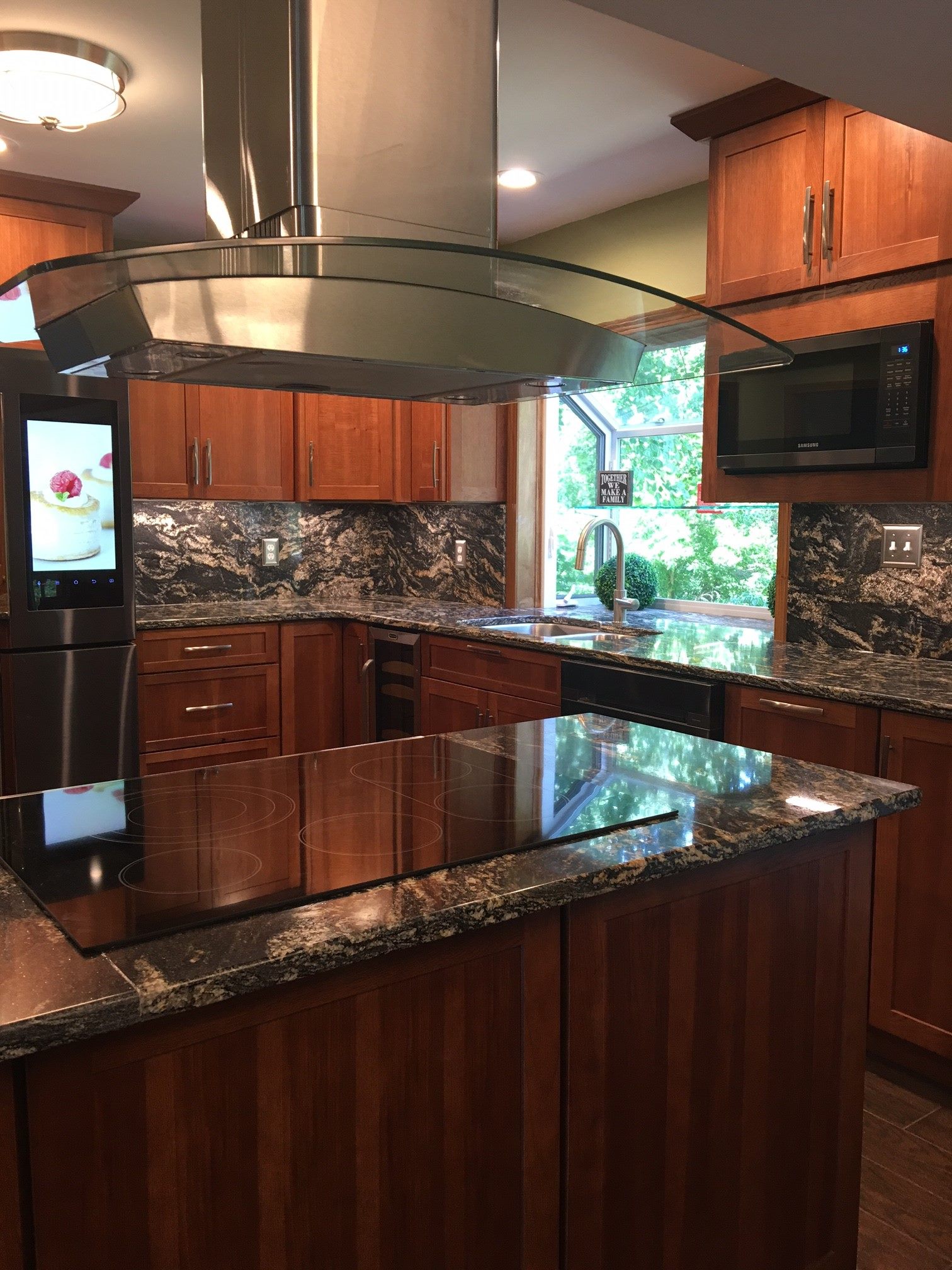
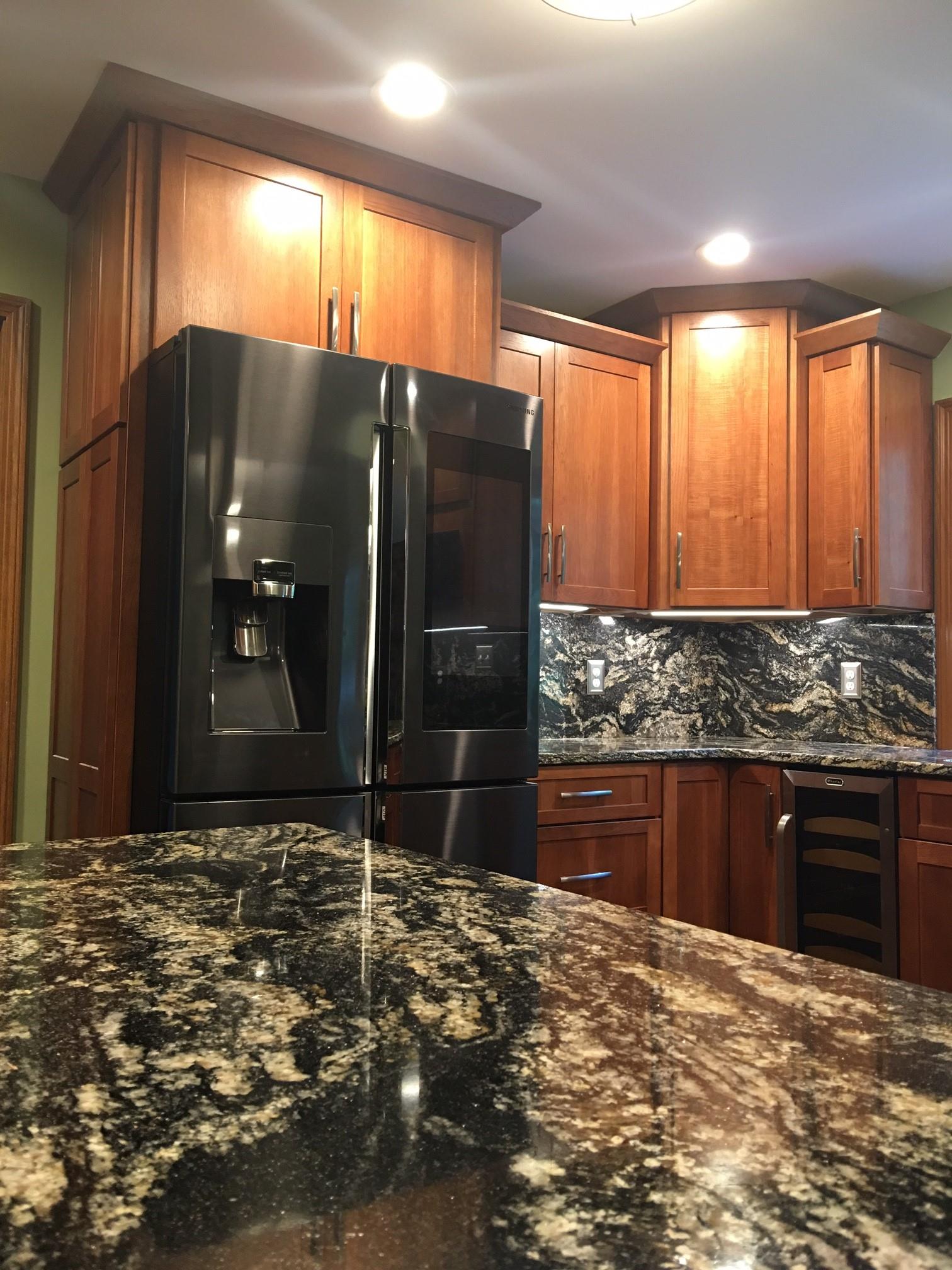
TIES THAT BIND
The bedrock of the company, though, remains family and family connections. Megan Carper began working in the business right out of high school, and she says she “adores” the idea of the family business.
“I love that the kids are growing up in my office and that they’re comfortable here,” she says. “I left the business for a little bit; we work a lot and I didn’t want to work that much with babies, but as soon as my daughter was in school, I was back.”
She credits her in-laws with educating her early in the Bailes’ philosophy of customer service, and while they aren’t active in the business on a daily basis any longer, she says her mother-in-law, Sue, is always willing to come in and answer phones, making sure people have hot coffee in the winter.
As for the senior John Carper, ”I put him on projects,” says Megan Carper, explaining she recently assigned him to battle city hall over some curbing that needed painting.
Not surprisingly, as soon as the couple’s almost-15-year-old son was able to fit into steel-toed boots, he began doing chores around the shop, including cleaning the filters on the water recycling system. Nor is he their only child with a little knowledge of the business.
“I had a call from one of the teachers at my daughter’s school,” Megan Carper explains. “We had recently done a quartz vanity for her, and my daughter asked, ‘How’s that quartz working out for you?’ The teacher thought it was hysterical; apparently my daughter had tried to educate her on why she should have real stone because that’s what she has. She’s eight.”
Currently, the company employs about 25 people, including the Carpers, and while they may not be members of the family by blood, many are related to others who work there, and some are family by longevity. For instance, the lead installers on the two install crews both have more than 15 years experience.
“Almost all our employees come from a friend-of-a-friend, or a recommendation from an uncle, a cousin, a brother,” Megan Carper says. “One of them had a brother-in-law who worked here for awhile as an installer. And, the guy who runs the shop for my husband, his wife is one of my salespeople.”
Still, just about everyone is trained in-house, with the lone exception being the head of the CAD department.
With that winning formula, it’s little wonder that this glass come stone company has continued for more than 60 years, and Megan Carper says aspects are good for the future.
“Our financial advisors tell us a lot of people don’t make it to the third, let alone the fourth generation,” she concludes. “Obviously, our kids are interested in the business, but a lot of my husband’s family is here in Charleston and I’m hoping to get them working here when they get a little older, as well.”
